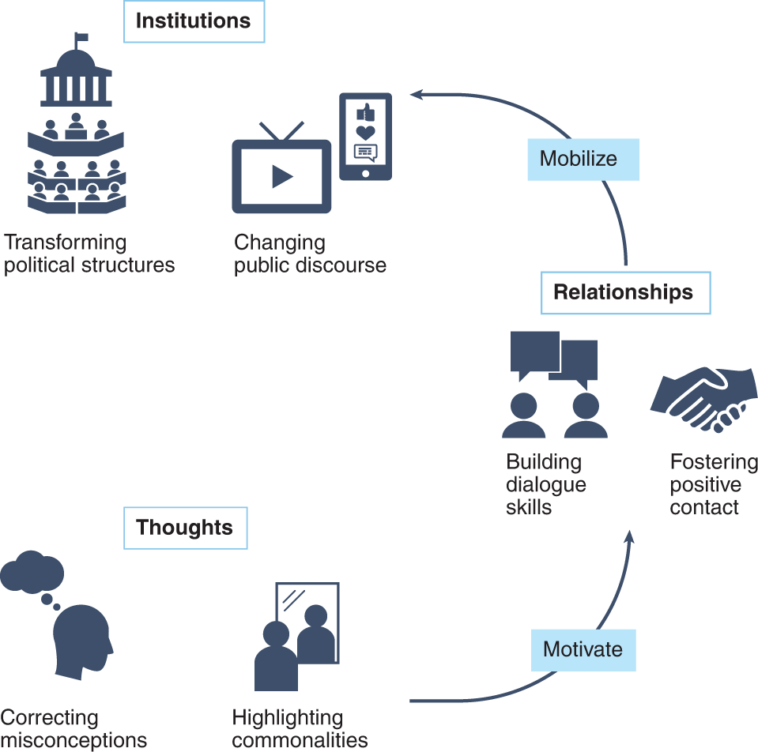During a podcast aired in February, commentator Piers Morgan found himself the subject of accusations of ‘race-baiting’, levelled by his guest, self-proclaimed ‘trans activist’ Blossom Brown. Almost conveniently, Brown positioned herself to be immune to reciprocal charges of racism, articulating a narrative that a Black woman could not be racist to a white man. Such a dismissal does raise questions about the veracity and logic of her argument, especially given her similar brushing off of Morgan’s ‘intellectual capacity’ to grasp her standpoint.
In another corner of the media landscape, Ryan Clark, a Black presenter for ESPN, has been dabbling in politics. His bias became apparent post the reelection of Donald Trump, as he publicly shared his endorsement for Kamala Harris. His blanket statement about Barack Obama’s presidency being ‘scandal free’ and conducted with ‘decorum and decency’ could be considered a subject of debate, given the multitude of controversies attached with it. Clark also extended empathy towards Trump supporters, acknowledging that not all believers of the President subscribe to his alleged bigotry.
However, Clark’s impartiality takes a nosedive when discussing the discord between WNBA stars Angel Reese and Caitlin Clark. His criticism of Robert Griffin III’s support for Caitlin Clark forms a startling contrast. Instead of welcoming honest sports commentary, Clark promptly assigns Griffin a demeaning label, stating that he’s incapable of understanding the struggles of Black women in America because of his marriage to White women. Clark’s arguments then suggest that Clark himself would have issues engaging with the complexities of the Black female experience.
Clark’s questionable prejudice gets amplified in case of ‘Black men who choose to date or marry White women’. It seems ironic that Clark, who criticized Trump’s alleged bigotry, ends up participating in a form of it himself. Even more paradoxical is Clark’s personal life. He is in a marriage with a Black woman after fathering a child with a White woman in a prior relationship. These contradictory optics don’t exactly create an aura of credibility around his widely broadcasted opinions.
The incendiary rhetoric continues with Jasmine Crockett (D-Texas)’s derogatory statement against Byron Donalds (R-Fla.). In discussing the deterioration of the traditional nuclear family, Donalds observed factual data that more Black children were likely to be raised by both parents during the Jim Crow era. Crockett’s flippant response alluded to this as some sort of historical ignorance or racial erasure due to Donald’s white spouse.
In the context of this ‘whitewashing’ accusation, should we also judge other figures such as Supreme Court Justice Ketanji Brown Jackson, former Vice President Kamala Harris, and ex CNN host Don Lemon, who all married outside their race? The argument seems less compelling applied against these individuals, further invalidating the legitimacy of such a dramatic claim against Donalds.
One cannot help recalling Spike Lee’s controversial stand around interracial couples, which remains unapologized for. A known supporter of then-President Obama, Lee didn’t mince words in expressing his discomfort around mixed-race couples in a 1992 statement. Fast forward to today, and one may ask if there’s a statute of limitations on such openly discriminatory expressions?
Does Lee’s disapproval also apply to Obama’s biracial parents? The selective criticism and application of racial bias in public discourse reveals a glaring inconsistency within the narrative advocating for racial equality. Where individuals are denounced for private decisions on who they love and marry compounds the injustice.
A 2020 poll by Rasmussen identified that ‘75% of American Adults believe the term ‘racism’ to denote any discrimination by individuals of one race against another’. What’s telling is that participants in the study were more likely to affirm that ‘most’ Black individuals are racist, over Whites, Hispanics, or Asians. Thirteen to Eighteen percent of respondents and as high as 25% for Black Americans viewed their own race as being more likely to exhibit racist behaviour.
Although the impact of anti-Black racism as a barrier to success appears to have lessened, it’s far from totally irrelevant. Thomas Sowell rightly argued that ‘Racism is not dead, but it is on life support — kept alive by politicians, race hustlers and people who get a sense of superiority by denouncing others as ‘racists”, emphasising the instrumentalisation and sustainability of racism.
On one hand, the crucial struggle against racism in society continues. On the other, some quarters of the Black political establishment, like Crockett, are allowed to use divisive language remarkably reflective of the discriminatory attitudes of the past. There’s a strange, unchallenged air of silence from Democratic Party leaders in response to such provocative statements.
These incidents of racial bias and the political underpinnings accompanying them give us crucial insight into the inherent contradictions present within societal discourse. The biased rhetoric seems to be an ironic mirror image of the prejudice that it purports to fight against. And such contradictions can ultimately undermine the conviction and credibility of these dialogues.
Political bias and personal judgement have no place in evaluating the struggles and experiences of individuals across racial lines. It’s vital to ensure that the discourse around race is informed by empathy, understanding, and fairness, regardless of personal or political biases, and undue generalizations and divisive language should be avoided at all costs.

